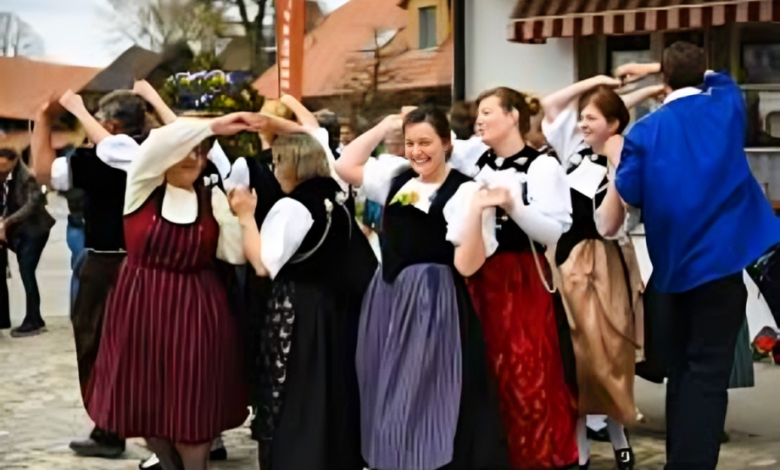Wiss Culture Exploring Its Origins Traditions and Influence

In a world rich with diverse cultural heritages, Wiss Culture stands out as a fascinating and unique tradition that continues to shape societies. This article delves into the origins, traditions, customs, and the influence of Wiss Culture in today’s world.
Origins of Wiss Culture
Wiss Culture traces its roots to ancient civilizations where knowledge, tradition, and social structures were deeply interwoven. Historical records suggest that it emerged from a blend of various cultural influences, evolving through centuries into a distinct way of life. The term “Wiss” itself may be derived from ancient linguistic structures, symbolizing wisdom, unity, and artistic expression.
The culture is deeply connected to storytelling, folklore, and the preservation of historical knowledge. Early communities that practiced Wiss Culture placed great emphasis on oral traditions, passing down legends, myths, and ethical teachings from one generation to the next.
Key Traditions and Practices
Wiss Culture is characterized by a variety of unique traditions that distinguish it from other cultural backgrounds. Below are some of the key practices associated with this culture:
1. Oral Storytelling and Folklore
One of the most significant aspects of Wiss Culture is the rich oral tradition. Storytelling serves as a primary means of preserving history, conveying moral lessons, and entertaining audiences. These stories often contain elements of mysticism, heroism, and wisdom, offering a glimpse into the beliefs and values of the community.
2. Festivals and Celebrations
Wiss Culture is known for its vibrant festivals, which bring communities together to celebrate their heritage. These events include music, dance, traditional attire, and elaborate feasts. Each festival carries a deeper meaning, often tied to historical events, seasonal changes, or religious significance.
3. Art and Symbolism
Artistic expression is a crucial part of Wiss Culture. Symbols, paintings, and sculptures hold deep meanings and are often used in religious or ceremonial contexts. Traditional Wiss artwork incorporates patterns, colors, and motifs that reflect nature, spirituality, and ancestral connections.
4. Music and Dance
Music and dance play a significant role in Wiss Culture, with rhythmic beats, melodious tunes, and expressive movements that narrate stories or convey emotions. Traditional instruments, including stringed and percussion instruments, are used to create unique sounds that define the cultural identity of the Wiss people.
5. Cuisine and Culinary Traditions
Food is an essential part of Wiss Culture, with traditional dishes prepared using age-old recipes. The cuisine often includes a mix of locally sourced ingredients, herbs, and spices that give it a distinctive flavor. Communal dining is a common practice, reinforcing social bonds and hospitality.
Influence of Wiss Culture in Modern Society
Over time, Wiss Culture has influenced various aspects of modern society, from literature and art to fashion and entertainment. Here are some notable ways in which it has left its mark:
1. Impact on Literature and Philosophy
Many modern writers and philosophers have drawn inspiration from Wiss Culture, incorporating its themes into their works. The emphasis on wisdom, morality, and human connections found in Wiss stories resonates in contemporary literature and philosophical discussions.
2. Integration into Global Art Forms
Elements of Wiss Culture have been adopted into global art forms, including paintings, sculptures, and digital media. Artists worldwide have been influenced by the symbolic representations and storytelling techniques rooted in Wiss traditions.
3. Fashion and Traditional Attire
Traditional Wiss attire, with its intricate designs and vibrant colors, has found its way into modern fashion trends. Many designers have incorporated cultural elements into their collections, celebrating the beauty and uniqueness of Wiss fashion.
4. Spiritual and Ethical Teachings
The spiritual and ethical values of Wiss Culture continue to shape religious and moral philosophies. Concepts such as respect for nature, harmony in relationships, and personal integrity are integral teachings that remain relevant today.
Challenges and Preservation Efforts
Despite its rich heritage, Wiss Culture faces challenges in the modern world. Globalization, technological advancements, and cultural assimilation pose threats to its preservation. However, efforts are being made to safeguard this culture, including:
- Educational Programs: Schools and cultural institutions promote Wiss traditions through academic curricula and extracurricular activities.
- Digital Documentation: The use of digital platforms helps archive oral stories, traditional music, and historical records.
- Cultural Festivals and Workshops: Organizing events dedicated to Wiss Culture ensures that younger generations remain connected to their heritage.
- Community Initiatives: Local communities play a crucial role in maintaining cultural practices by actively participating in traditions and storytelling.
Conclusion
Wiss Culture is a vibrant and invaluable part of human heritage, rich with history, traditions, and profound teachings. Its influence continues to thrive in various aspects of modern life, from art and music to philosophy and ethics. By recognizing its significance and taking measures to preserve its legacy, we can ensure that future generations will continue to appreciate and celebrate Wiss Culture for years to come.



